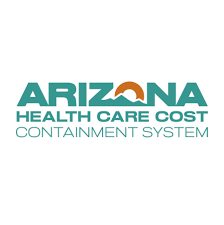Arizona is taking a groundbreaking step to address the health care needs of incarcerated individuals reentering their communities. Thanks to the efforts of Governor Katie Hobbs, AHCCCS Director Carmen Heredia, and their dedicated teams, Arizona’s Medicaid program (AHCCCS) has received federal approval to implement an innovative, evidence-based system designed to improve health care access during this critical transition.
Reentry Interventions that Address Substance Use: A Systematic Review – PMC
This new initiative addresses a long-overlooked gap in health care, ensuring that individuals leaving correctional facilities receive the medical support they need to rebuild their lives. The program includes several key components that could transform reentry health care in Arizona:
Medication-Assisted Treatment (MAT) for Substance Use Disorders
Substance use disorders (SUDs) are common among incarcerated individuals, and untreated SUDs significantly increase the risk of overdose and recidivism after release. AHCCCS’ plan ensures that individuals can access MAT for all types of SUDs, combining medications with counseling and behavioral therapies. Research consistently shows that MAT is one of the most effective treatments for SUDs, significantly reducing relapse rates and improving long-term outcomes.
A study published in Health Affairs underscores the importance of this approach, noting that expanding access to MAT for justice-involved populations reduces overdose deaths and improves public health outcomes. By making MAT accessible immediately upon release, Arizona is leading the charge in implementing evidence-based solutions to one of the most pressing public health challenges of our time.
30-Day Prescription Supply Upon Release
Another critical feature of the AHCCCS program is ensuring that individuals leave correctional facilities with a 30-day supply of all prescribed medications. This provision addresses a common and dangerous gap in care: the abrupt discontinuation of necessary medications.
Whether it’s managing chronic conditions like diabetes or hypertension, treating mental health disorders, or continuing MAT for SUDs, this policy ensures continuity of care during a vulnerable period. It’s a straightforward yet transformative measure that demonstrates Arizona’s commitment to improving health outcomes for all residents.
Access to Practitioner Office Visits
The program also includes comprehensive coverage for practitioner visits upon release. These visits could include physical exams, wellness checks, mental health counseling, or substance use disorder treatment. This approach ensures that individuals can quickly connect with medical professionals to address urgent health needs, manage ongoing conditions, and establish long-term care plans.
A Model for the Nation?
Arizona’s proposal is more than just a policy; it’s a blueprint for how states can address the health care needs of justice-involved populations. Studies show that providing access to health care during reentry improves health outcomes, reduces recidivism, and ultimately lowers costs for taxpayers.
This initiative is a testament to the leadership of Governor Hobbs and Director Heredia. Their commitment to evidence-based policymaking and their recognition of the human dignity of all Arizonans are commendable. They’ve set a high bar for what compassionate, innovative governance can achieve.
A Healthier Future for Arizona
By addressing the health care needs of incarcerated individuals reentering society, Arizona is paving the way for healthier communities and safer neighborhoods. This program recognizes that health care is a right, not a privilege, and that everyone deserves a chance to succeed.
Kudos to AHCCCS and its partners for this bold, forward-thinking initiative. Let’s hope other states follow Arizona’s lead in transforming reentry health care.
Next Steps
Next steps: AHCCCS is working on their implementation plan (due in late April) and will eventually need legislative approval of their plan.
